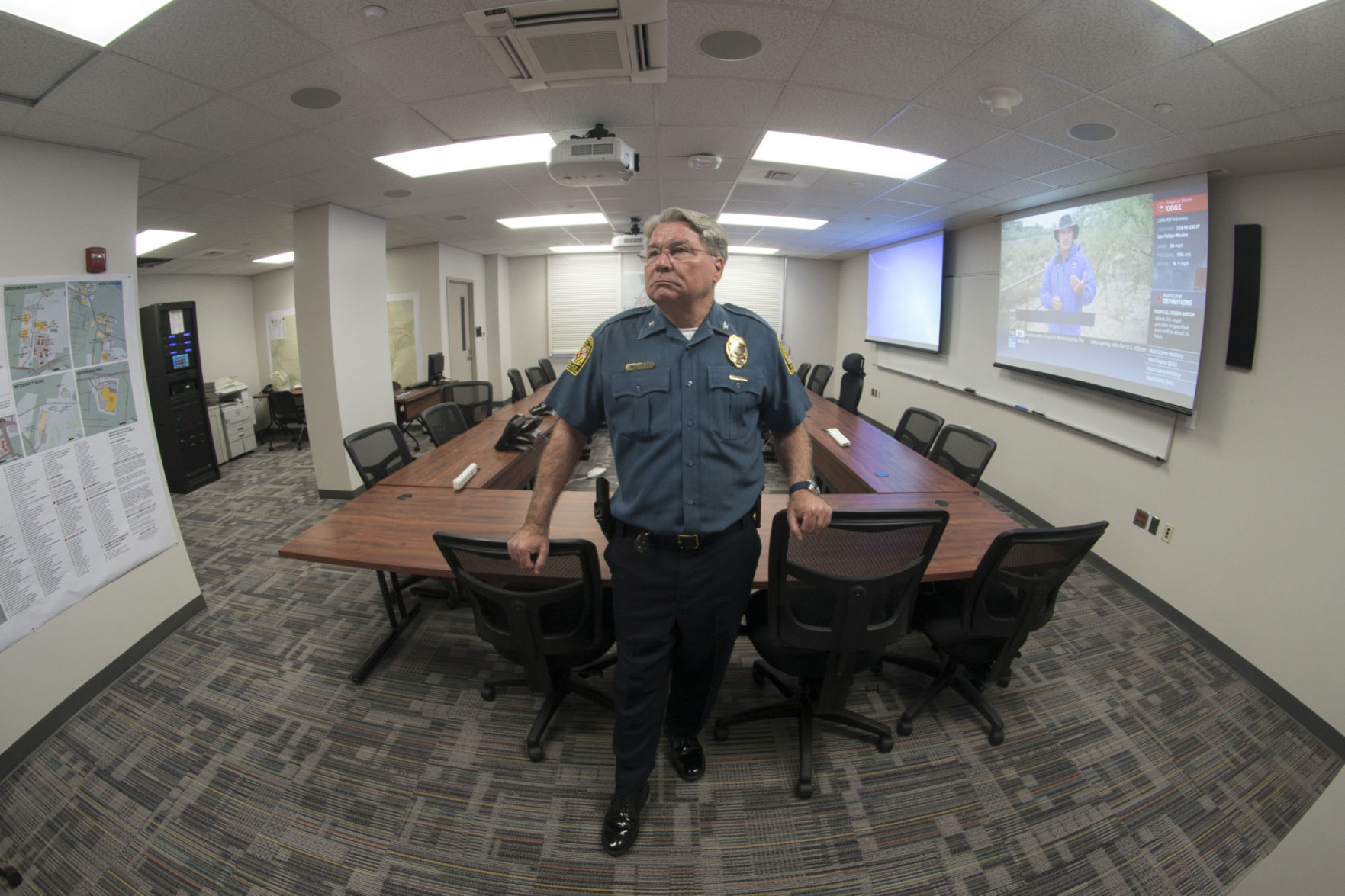
University Police Chief David Mitchell stands in the department’s control room located in the Pocomoke Building.
To University Police Chief David Mitchell, incidents of victim shaming or victim blaming by other universities’ police forces in the last few years are unacceptable.
“It’s disgusting to read that,” Mitchell said. “We will not allow a victim to be victimized twice — once by the horrific experience they go through with an offender, and then by a system that seems callous and careless and anything but supportive.”
During police academy training, officers learn how to properly deal with and respond to sexual assault cases. University Police requires annual in-service trainings, which Mitchell said often revolve around sexual misconduct and updating officers on new procedures and tests as well as victimization.
“Our [training] is victim-centered toward our majority population here, which make us unique — 37,000 students, the vast majority is under the age of 21,” Mitchell said. “I’ve made it very clear here that when a victim of sexual assault — more often that not, it’s a woman — says, ‘I have been victimized,’ we are going to accept her word, take a report, investigate what happened and determine if a crime was committed. And if we know who did it, there’s going to be an arrest.”
The Sexual Misconduct & Relationship Violence Office plans to begin working with University Police during some of their short daily training sessions to ensure everyone has a working knowledge of Title IX and the office’s role, said office Assistant Director and Investigator Josh Bronson.
Mitchell said he expects these training sessions to begin in the next two weeks, and he thinks they will help officers understand where Title IX can come into play when the law won’t apply, such as in a harassment case.
“I feel that all of our officers are trained and well equipped to handle a report of sexual assault, and our detectives are best equipped to conduct an investigation,” Mitchell said.
Students sometimes reach out from the University Health Center’s CARE to Stop Violence advocacy group, which police work with to maintain a good relationship, Mitchell said.
“Through the CARE coordinator, [they] assure the victim that we stand ready and willing to accept a report on what transpired and to investigate this matter as a crime,” Mitchell said.
When University Police receive a call, Mitchell explained how his police force should, and will, respond.
•The first thing the department does is send a police officer. If the assault just happened, police come under lights and sirens.
•Officers will take an initial report, render support to the victim and notify the Title IX office immediately.
•If possible, the officers will pursue any offenders.
•Depending on the situation, officers will begin collecting evidence of value for a possible investigation.
•Detectives will get involved and begin an investigation using the latest forensic science techniques.
Senior staff writer Darcy Costello contributed to this report.



